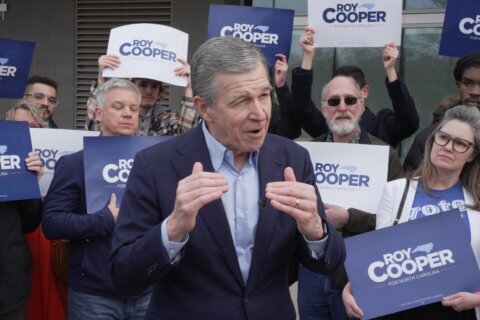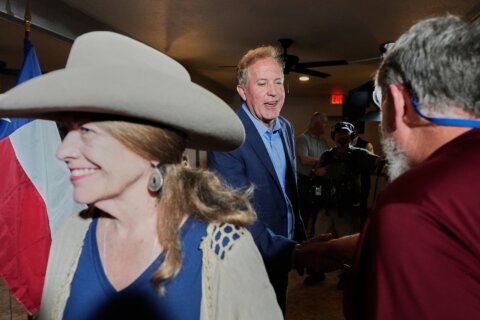
A university gift shop display hung ornaments of African American history-makers from the branches of fake trees, days before the start of Black History Month. Nobody thought anything of it until a black graduate student pointed out that it looked like they’d been lynched.
The backlash from black students at Michigan State University was swift. Many said it’s only the latest example of the racial bias they encounter on the campus, where just under 7% of the student body is black.
Krystal Rose Davis-Dunn, a graduate student at Michigan State, first spotted the display last week in the gift shop at the university’s performing arts center where she’d attended a jazz concert.
She told CNN she immediately noticed ornaments of black figures like Michelle Obama, Harriet Tubman and Prince, among others, hung from the branches of several small fake trees. Seeing the figures positioned in that way evoked a visceral response in her, Davis-Dunn said.
She checked with her friends to make sure she wasn’t “hypersensitive,” she said, but it enraged them, too.
She then shared the images on Facebook. “What a way to honor Black History!” she wrote.
The gift shop didn’t recognize lynching
The day after Davis-Dunn posted the photos, the gift shop removed the display and the university apologized in a statement.
“We were made aware of an inappropriate and insensitive display at the Wharton Center gift shop which used a tree-like rack to hold historical black figures,” Michigan State University spokeswoman Emily Gerkin Guerrant said. “Regardless of the intent of the display, its impact cannot be ignored — people were hurt and offended.”
Davis-Dunn told CNN she had initially asked the gift shop’s employees if they thought anything was wrong with them, but they said no. “They’re black people hanging from trees,” she said. “I mean, lynching? It was just not registering with them.”
The latest racially insensitive incident on campus
The incident is the latest in a string of racial insensitivities on Michigan State University’s campus in the 2019-2020 school year.
In October, a black student at the university reported that someone tied toilet paper in the shape of a noose on her dorm room door. University officials asserted it was an innocent prank, but the student said hers was the only door with the decoration.
The same month, a Michigan State professor sent students a survey that used racial slurs. He said it was an experiment to study students’ reactions to the offensive words but later apologized after students complained.
The university’s Black Students’ Alliance protested that month and demanded the university require cultural, racial and religious sensitivity training for all university faculty and staff as well as a mandatory class on race, ethnicity and racism for all students by Fall 2020, among other demands to improve inclusion.
Just under 7% of the university’s student body is black, according to a 2019 Michigan State enrollment report. But students at the university said the gift shop display is just one example of the racial bias, intentional or otherwise, that they face on campus.
John Ray told CNN affiliate WILX that black students feel unsafe at Michigan State.
“Students of color here feel unwelcome,” he said. “I’m just going to say it.”
Davis-Dunn echoed his sentiment.
“That display was just a physical representation of the institutionalized racism within the university,” she said. “There are people in this university that don’t want me here, that do not welcome me and are not able to meet my needs as a woman of color.”
Employees will undergo racial bias training
Guerrant, the university’s spokeswoman, said employees and volunteers at the university’s performing arts center will undergo racial bias training to uncover intentional and unintentional racial bias.
But Davis-Dunn said that brief training is not enough to reverse centuries of racism. She recommends university leaders listen to and partner with black students to make decisions about the campus community — their campus community.
“It’s one thing to receive a training, but another thing to actually have the applicable skills to put them to use and change behavior,” she said. “I want to believe [university leaders] care. I believe they’re just not equipped to deal with it.”







